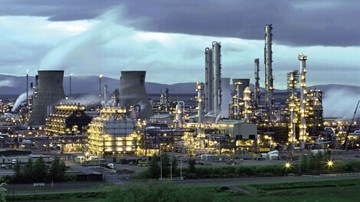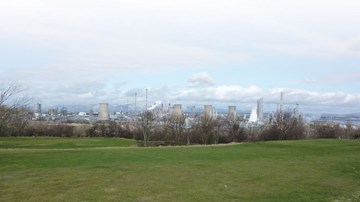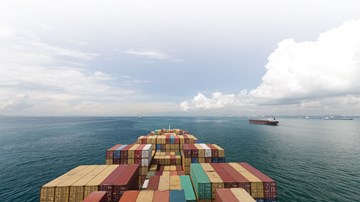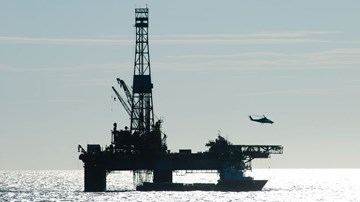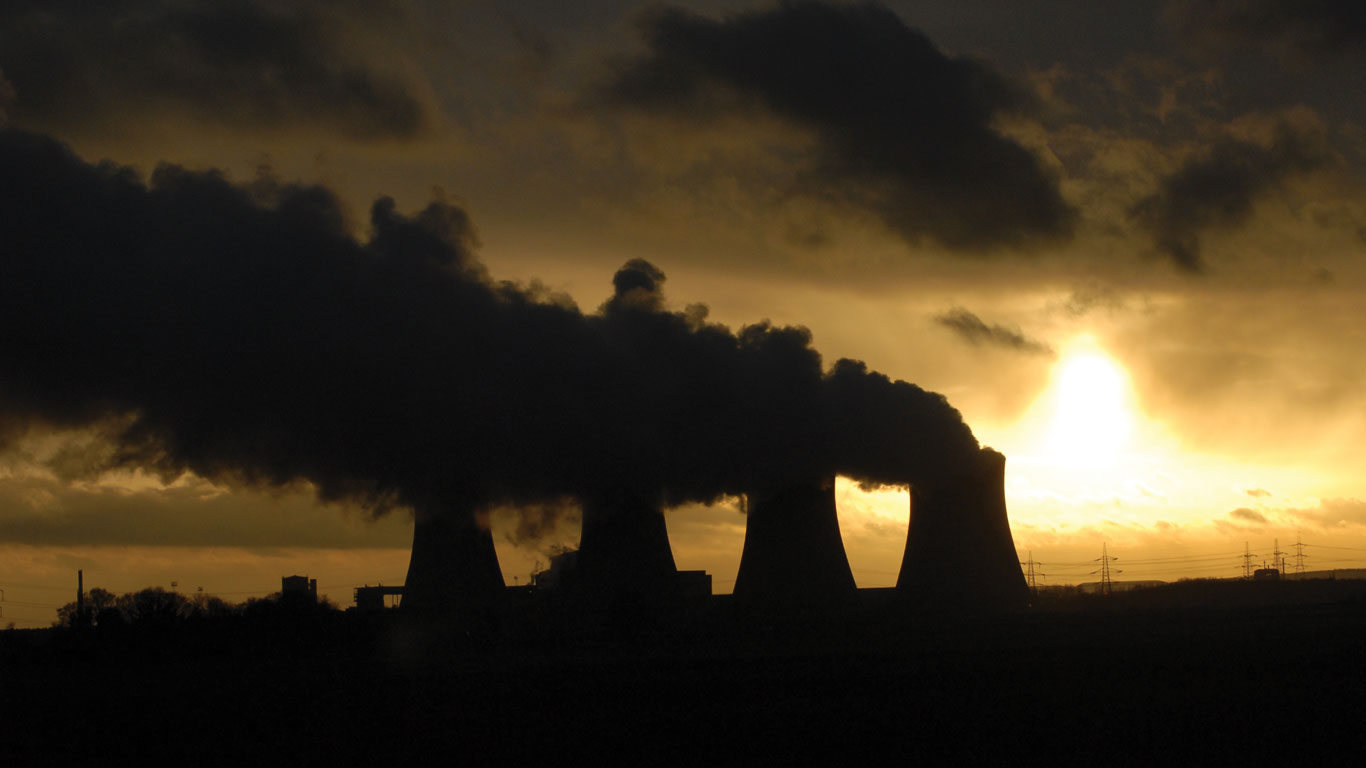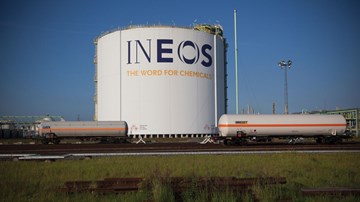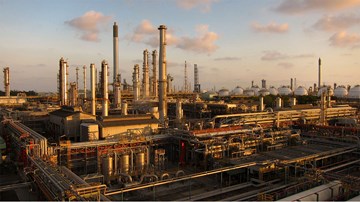For years America had to watch as companies migrated overseas. For those companies, which chose to leave US shores, the grass was much, much greener on the other side of the world. Now they are coming back and America, thanks to shale gas, is at last reaping the benefits.
After years of losing out to Asia and the Middle East, the tide is turning in America’s favour.
But it’s not just turning.
It’s now coming in so fast that the US is struggling to keep up with the number of chemical companies wanting to build new gas crackers, restart old ones or expand existing plants so that they can take advantage of the vast amounts of cheap natural gas either as a source of energy or as a vital raw materials used by the petrochemical industry to make plastics and solvents.
And it’s all down to manpower.
“We are already seeing the difficulties because there are so many projects,” said Bob Learman, CEO of INEOS Oligomers, which is due to open a new world-scale linear alpha olefins plant on the Gulf Coast at the end of 2016.
“There is a shortage of engineers coming out of colleges, but our immediate challenge is finding experienced people who can build and operate complex chemical plants.”
Once built, our new plant is expected to increase INEOS Oligomers’ annual profits by about $100 million.
INEOS’ expansion plans, though, are only part of the American dream.
In August, IHS Chemical estimated that chemical companies were planning to invest $48 billion in new plants between now and 2017, rising to $68 billion between 2018 and 2030.
“That is a 60% increase from 2010 which is staggering growth,” said Bob.
“And what is driving all this investment is access to low-cost ethane for chemicals.”
In short, the availability of low-cost ethane, a natural gas derived from shale gas, has revitalised the US chemical industry, and given it an advantage over many competitors around the world, which rely on naphtha, a more expensive, oil-based feedstock.
“Shale gas has really changed everything,” said Dennis Seith, CEO at INEOS Olefins & Polymers USA.
“It’s been nothing short of phenomenal and the opportunities are continuing.
“Lower cost feedstocks are driving increased margins and competitiveness for our domestic markets and we are seeing increased US demand.”
INEOS Capital has set aside more than $300 million to buy pipelines, improve the infrastructure and expand its production of ethylene, a chemical that is used by manufacturers to seemingly make everything from soaps to paint to clothes to plastic bottles to cosmetics.
A new unit to produce 500,000 tons of high-density polyethylene a year will also be built before the end of 2015.
“INEOS Capital normally invests between $50 and $100 million in our business every year,” said Dennis. “So this is a big number.”
The investment is expected to add about $250 million a year to the business’ bottom line.
Dennis said all the investment was being driven by access to cheap ethane, which it used to produce ethylene.
“These low-cost feedstocks have enabled our business to significantly increase profitability from levels that were at $300 million a year to more than $1 billion per year,” he said.
That access to cheap raw materials, that advantage, that shift in fortune, that ‘game changer’ is seen as a threat to many outside America’s borders.
Saudi Arabia, Russia and China are all believed to be concerned about America’s energy boom. For although many parts of the world are sitting on vast reserves of shale gas, only America has so far managed to commercialise production on a large scale.
Europe, which is one of the most expensive places in the world to make petrochemicals, has the same breakthrough technology to unlock the natural gas trapped in shale rock, but is dithering over what to do about it.
In the UK, where some drilling has taken place, there have been protests over fracking.
“Fracking is a very contentious subject in America too,” said Bob. “In the more densely populated places where shale gas has recently been discovered – Ohio, New York and Pennsylvania – they are concerned about perceived negative environmental implications.
“But there is not the aggressive opposition you see in Europe. It’s much more of a sensible, civilised debate and one that is on-going.
“In the places, though, where there is a long history of drilling for oil and gas, people see the benefits and they support it.”
In a recent PwC report on the potential impact of shale gas on US manufacturing, experts forecast that shale gas could create more than one million jobs by 2025 and allow US manufacturers to cut their raw materials and energy costs by as much as $11.6 billion a year.
“That’s quite conceivable,” said Jim Cooper, a senior petrochemical adviser at American Fuel & Petrochemical Manufacturers.
“There are many reasons why all eyes are on America at the moment and it’s because of these two huge advantages – the price of energy and the price of raw materials.
“Basically we have a lot of things in the right place at the right time.”
It’s a far cry from those dark days during the 2008-2009 global downturn when the world’s lights went out.
The American Chemistry Council said during that time an estimated 66,000 people lost their jobs in the chemical sector alone as demand for their products slumped.
Construction – a key market for the US chemical industry – came to a virtual halt. Spending on cars, furniture and electrical appliances – major markets for the chemical industry - massively dropped as people tightened their belts.
INEOS Oligomers, which makes hexane and octane to produce polyethylene, low toxicity drilling fluids and a significant amount of feedstock for high performance synthetic lubricants, saw a big drop in profits, but, due to its diverse range of products, ‘rebounded nicely’ after a tough two years.
“Our profits almost tripled between 2009 and 2010,” said Bob. “They went from a low of $67 million during the recession to $187 million the following year.”
INEOS Olefins & Polymers USA, which makes a range of products including the resins for the global plastics manufacturing industry, also emerged stronger following the recession.
“We had already done our restructuring and had been more focused on reducing our costs before the recession, so when the downturn ended, we were in a position for growth,” said Dennis.
“Even in those dark days, though, there were opportunities. The silver lining for us was that we were able to recruit a lot of talented people.
“Many people had retired from INEOS but we were able to replace them quickly with a lot of new talent as other companies cut back on staff. And they brought in new ideas.”
Today the US chemical industry produces about 19% of the world’s chemical output, which is worth billions to the US economy. With shale gas, that figure is expected to rise.
The shale gas boom has also led to an insatiable appetite among banks and individuals now keen to invest in chemical companies.
With more than 50% of INEOS’ profits now coming from the US, it has also become a magnet for INEOS Capital’s investment.
Between now and 2017, INEOS Capital plans to invest almost $400 million in its Oligomers business in the US where production costs are half what they are at its sister plant in Belgium in Europe.
In addition to the new linear alpha olefin unit on the Gulf Coast, it also intends to increase its polyalphaolefin (PAO) production to satisfy the demand for high performance synthetic lubricants, which lower carbon emissions, improve fuel consumption and protect engines from wear and tear. PAO is also used as an industrial lubricant.
“It is particularly in demand for wind turbines where high shear stability is critical,” said Bob.
That investment alone is expected to boost INEOS’ profits by $20 million a year.
“It’s really exciting,” said Bob. “Growth creates opportunities for people, and although the PAO plans won’t add a lot of jobs, the new LAO plant will create about 100 jobs.
“INEOS Oligomers is already the world’s largest producer of polyalphaolefin and our investment plans will ensure we maintain that position.”
The new linear alpha olefins plant, which can be expanded by 50% if needed, will be able to produce an extra 350,000 tons every year.
Most of the extra capacity will be destined for the North American market to support the rapid expansion of polyethylene production and rapid demand for synthetic lubricants.
Discussions are also taking place over whether INEOS, a company which grew through acquiring others’ unwanted assets, should invest billions in a gas cracker and an ethylene glycol unit.
“That is something INEOS has never done before, and it would have been unheard of for any company to build a gas cracker in the US five or 10 years ago,” said Dennis.
Before the shale gas boom, America relied heavily on imports of liquefied natural gas. In 2008, the US was so worried that it might run out of natural gas that Houston-based Cheniere Energy built five massive gas storage tanks in coastal Louisiana.
“If you want to see what the natural gas revolution in America has wrought, there’s no better place than the Sabine Pass liquefied natural gas port,” said Forbes reporter Christopher Helman. “Those tanks are empty.”
The reason is shale gas. Drillers finally discovered how to squeeze oil and gas out of rock once thought too difficult and too expensive to tap, and now America has so much gas they don’t know what to do with it.
“Cheniere Energy is effectively now turning its gas import terminal into an export terminal,” said Christopher.
Bob and Dennis are both full of praise for their European colleagues who spotted, then seized, the opportunity to strengthen their own competitive position as an ethylene producer In Europe – by importing cheap US-derived ethane for their European gas crackers.
“They moved very quickly to secure a deal to export ethane to Norway,” said Dennis.
INEOS Olefins & Polymers in Norway will start importing up to 800,000 tons of US-derived ethane feedstock a year from 2015.
“That’s going to be a game changer,” said Dennis. “Others will follow, but INEOS was first.”
Meanwhile, if INEOS does decide to build a cracker, it could face another potential battle.
“We would need several hundred people to run it and that’s a huge, daunting challenge for INEOS in itself because we are not a household name,” he said. “But we are making lots of progress and INCH magazine is playing a big part in raising our profile.
“Our best selling point, though, is our own people because they want to work with other good people who share their vision.”
Both Bob, who worked for The Dow Chemical Company for 20 years, and Dennis champion INEOS’ refreshing approach to business.
“It’s not uncommon for an important decision to be made in 30 minutes,” said Bob. “There are no long-winded reports to be written or committee meetings. The process is extremely clear. We just have a good discussion.”
He also praised INEOS Capital’s willingness to accept calculated risks.
Graduates also enjoy the freedom to make a difference by being given a real job with real responsibility from their first day at work.
“When I was a young engineering graduate I wanted to change the world but it was hard to do,” said Dennis. “If someone had given me the opportunity, like INEOS does, I would have thought that was a pretty attractive feature.”

